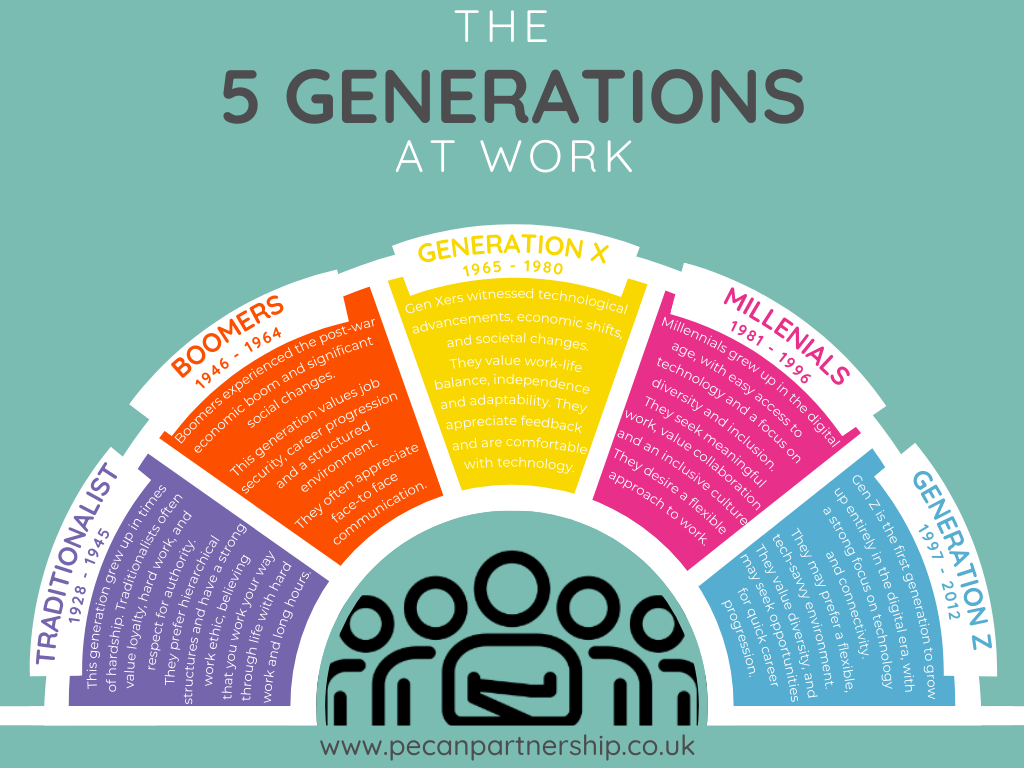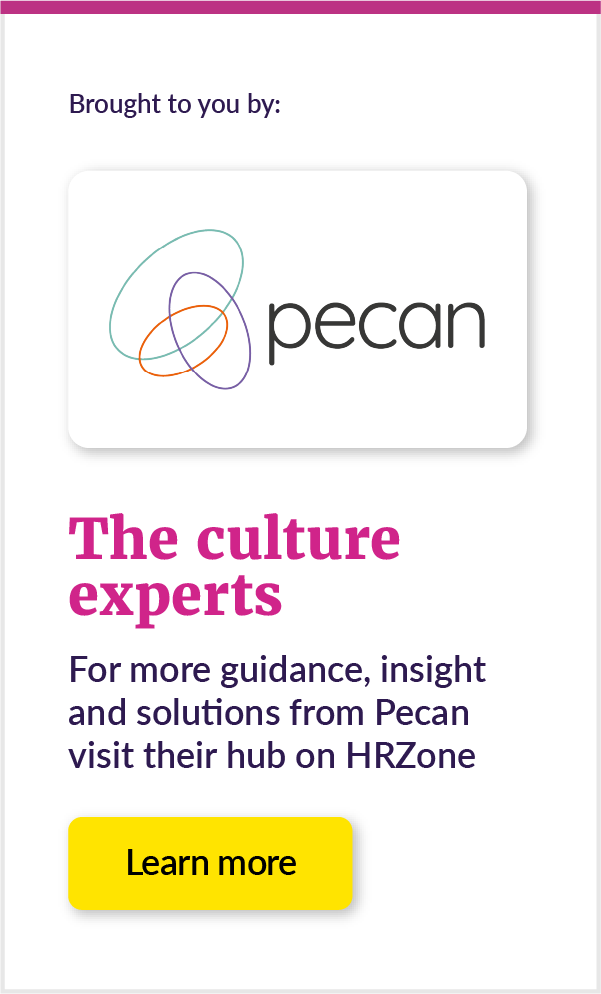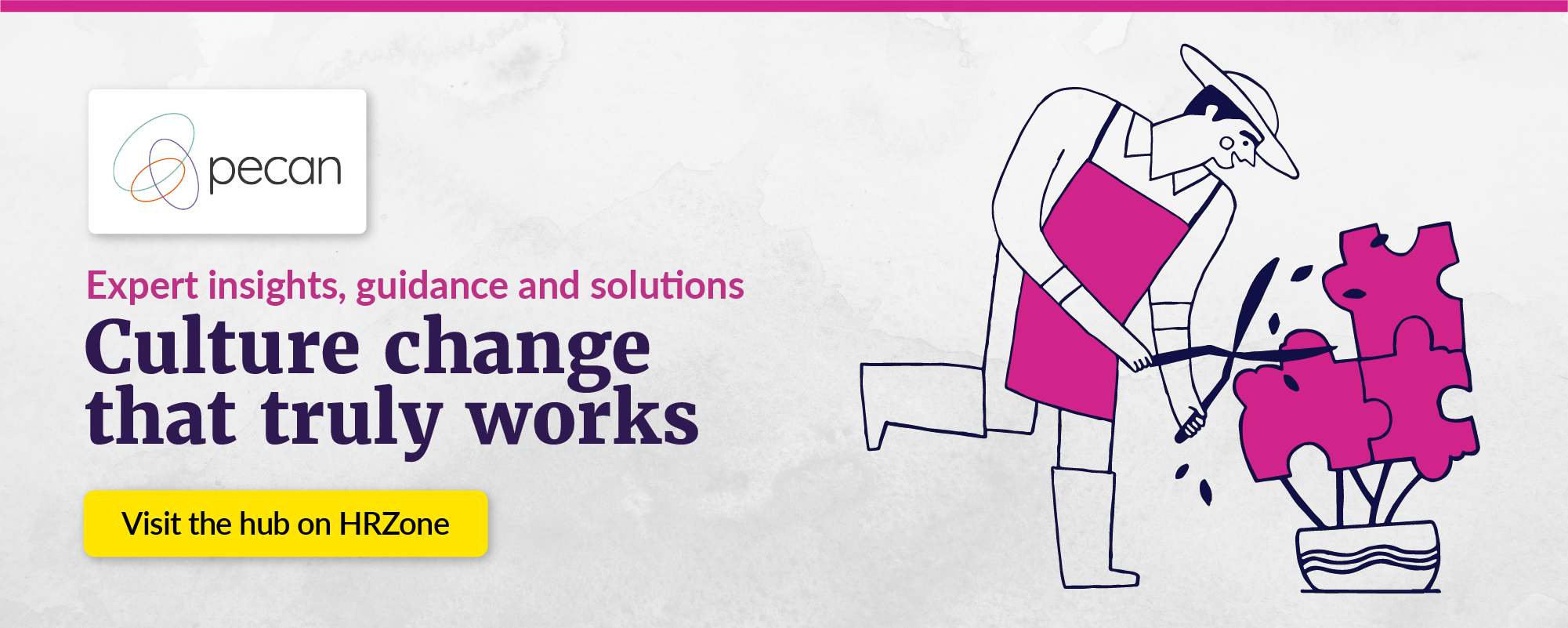“They’re really annoying, especially in the workplace. They’re like, ‘Nah, I’m not feeling it today, I’m gonna come in at 10:30 am.’”
This quote from Jodie Foster’s interview in The Guardian got a lot of media attention, perhaps because it chimed with the unspoken feelings of older generations and their belief that young people today are in some way ‘work-shy’.
It is human nature to put things (or people) in boxes with labels – categorisation helps us make sense of information quickly and efficiently.
So here are some neat boxes to start with

But problems start when this is as far as we go – we stop at the labels, using them to confirm beliefs we already hold about different generations and reinforce the stereotypes getting in the way of progress.
We have probably all heard the narrative that the next generation is “entitled” or “snowflakes”, and that they refuse to work long hours or go along with organisational change without challenging the reasoning behind it.
I am a Gen X parent to Gen Z young people and I work with hundreds of clients across all generations. For every person I can think of who conforms to these labels, I can think of ten who do not.
Much more so, I see the enormous untapped potential to share learning and experiences across generations that can be used to solve problems, bring fresh thinking and meet customer needs that cannot be done alone.
valuing individual expression over conforming to social stereotypes, guided by intrinsic values and social responsibility rather than material gains
Take Gen Z (or 2020) for example. McKinsey’s True Gen report describes how they are typically more pragmatic and analytical about decisions than members of previous generations and believe that dialogue is needed to create change.
Elsewhere in Jodie Foster’s interview, it is apparent that she too appreciates qualities in younger actors that are impressively progressive – valuing individual expression over conforming to social stereotypes, guided by intrinsic values and social responsibility rather than material gains.
So how do we break through the stereotypes and tap into the wealth of diversity that people of all generations can bring to our workplaces?
How to help multi-generations work brilliantly together
1. Drop the stereotypes
Instead get to know individuals as ‘whole humans’ – their strengths, their challenges, their aspirations. People leaders need to prioritise building strong, insightful relationships so that they can personalise their approach to management. Understanding someone is not the same as colluding with them. In fact, it can make it easier to stretch and challenge people to have an even bigger impact.
2. Strengthen emotional intelligence (EQ)
If EQ isn’t already talked about and developed in your organisation, now is the time. This takes reflection to create safe spaces on a routine basis to raise awareness of personal values, beliefs, assumptions, motivations and the impact of behaviour. Make sure leaders role-model, raising their self-awareness as well as understanding others.
3. Emotional education
Understandably the Pandemic caused us all to focus intently on our physical and mental health with managers making sure people were safe. But we may now be overly sensitive to ‘negative’ emotions and use language that perpetuates feelings that we don’t want. (My son recently rang to tell me he’d had an “anxiety attack” on a school trip – when we talked some more he realised he had simply felt worried”).
Experiencing a full range of emotions and a healthy level of adrenalin is part of being a fully functioning, healthy adult. Help people name their emotions accurately and de-dramatise their language so they can accept their feelings and develop coping strategies that keep them learning and growing.
4. Set ‘stretch goals’ together
In my experience, many of the fundamentals of good management have fallen by the wayside – setting SMART objectives, and having regular 121 conversations. Working with multiple generations may make this feel more challenging because expectations and motivators may be different from our own, but hybrid working makes these basic routines more important than ever.
5. Goldilocks people policies and practices
Make sure that HR policies and practices are not too harsh and not too soft, enabling managers to take an approach that balances compassion and challenge. They need to know that they will be supported if they are working with a member of their team to improve their performance in an appropriate way, whilst not imposing rules that just don’t work for the wide range of circumstances in which people are living and working.
Meaningful work enhances our self-esteem
Gallup’s State of the Global Workforce report found that 70% of team engagement is attributable to the manager, they are the linchpin of engagement. But budgets are typically aimed at senior leaders, missing the opportunity to develop fundamental skills in anyone leading people in the organisation.
Meaningful work enhances our self-esteem and boosts wellbeing which in turn helps us be productive. Helping each person in a team unlock this experience, regardless of their generation, is the result of great people management.
Change comes from dialogue and good dialogue requires confidence and skill. So to help multi-generations work brilliantly together and tap into the potential that this elixir of experiences brings into workplaces, invest in your managers and create spaces for curiosity and collective action.










